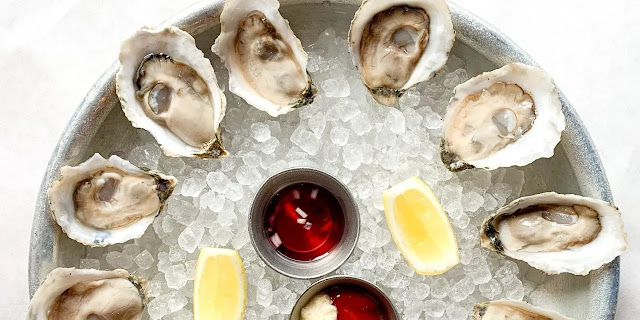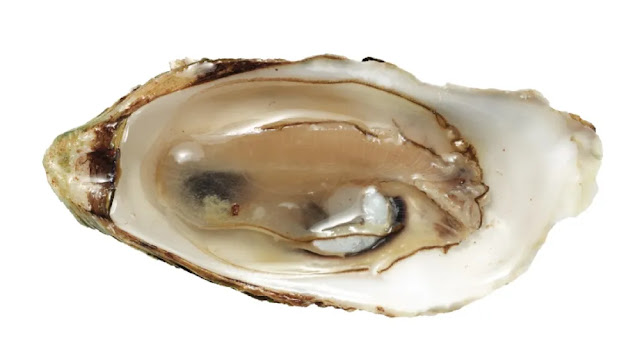Two people have reportedly died after eating raw oysters caught in the waters off Louisiana, United States.
Rodney Jackson of Dallas, a 55-year-old Air Force veteran purchased oysters from a seafood market in Florida during his recent trip to Sunshine State in early August, the Pensacola News Journal reported.
A local news outlet wrote, as reported by the New York Post, Friday, August 19, 2022, that Jackson ate some oysters he bought himself and fell ill with mild symptoms not long after. His symptoms reportedly worsened when he had difficulty breathing.
Jackson was then transferred to the Ascension Sacred Heart Intensive Care Unit in Pensacola. He was diagnosed with vibriosis. It is a bacterial infection usually associated with raw or undercooked shellfish or exposure to seawater.
Vibrio is the bacterium that causes vibriosis and annually causes about 80,000 illnesses and 100 deaths in the US, according to US Centers for Disease Control and Prevention (CDC) data. The bacteria are reported to thrive in warm water, both salt and brackish water, and can remain in the shells long after the creatures have been removed from their aqueous environment.
The CDC notes on its "Food Safety: Oysters and Vibriosis" website, explaining that vibriosis infection usually occurs after a person eats shellfish coated in vibrio or exposes an open wound to contaminated seafood or seawater.
Invisible, Odorless and Tasteless
The CDC writes, "Oysters containing Vibrio don't look, smell, or don't even taste different from other oysters. You can kill Vibrio in oysters and other shellfish by cooking them properly."
Jackson, who was a business director, reportedly died on Tuesday, August 9, 2022, and experts note raw oysters were the cause of his fatal infection, according to the Pensacola News Journal.
The New York Post reports that Jackson's oyster-related death is the second to have occurred in Florida, but the first person to die from the same cause is not yet publicly known.
Both recorded cases were reported to be related to oysters sourced from Louisiana, the news outlet claims. The US Food and Drug Administration (FDA) believes that "just (eating) a few oysters can't hurt you" is a myth, noted in the online guide "Raw Oysters Myths."
"Roberta Hammond, Ph.D, Food and Waterborne Disease Coordinator for Florida, cites a case in which death caused by Vibrio vulnificus occurred after eating only three oysters," the FDA wrote.
Don't Eat It Raw
The FDA also wrote, "The seriousness of any case depends on many factors, including how much bacteria was ingested and the person's underlying health condition."
The FDA and CDC insist that only heat can completely kill the vibrio bacteria, which is why both agencies recommend people cook clams and avoid serving them raw.
Alcohol, hot sauce, and lemon juice can't remove harmful bacteria from oysters and other seafood, according to the FDA and CDC. Food safety tips the CDC recommends include keeping cooked seafood away from raw seafood to avoid cross-contamination.
Next, you are asked to wash your hands with soap and water after touching raw seafood. Also, discard shellfish that have opened before cooking or refuse to open completely after cooking.
The CDC recommends boiling clams such as oysters until their shells open and continuing to cook them for another three to five minutes, to make sure they are thoroughly cooked.
Safe Oyster Cooking Method
Alternatively, they also describe cooking methods that have been proven to be safe. First, steam the whole oysters for four to nine minutes, boil the peeled oysters for the last three minutes, fry the peeled oysters in oil for at least a few minutes at 190 degrees Celsius.
Then, roast the peeled oysters from the heat source for three minutes and roast the peeled oysters for 10 minutes at 232 degrees Celsius. When it comes to water exposure, the CDC says people should avoid saltwater and brackish water if they have open wounds or have recently had surgery, piercing, or tattoos.
"Cover all wounds if they can touch raw seafood or raw seafood juice, or if you may be exposed to brackish water or saltwater," the CDC writes in its oyster safety guide. "Wash open wounds and wounds thoroughly with soap and water if exposed. saltwater, brackish water, raw seafood, or raw seafood juice or drip."




